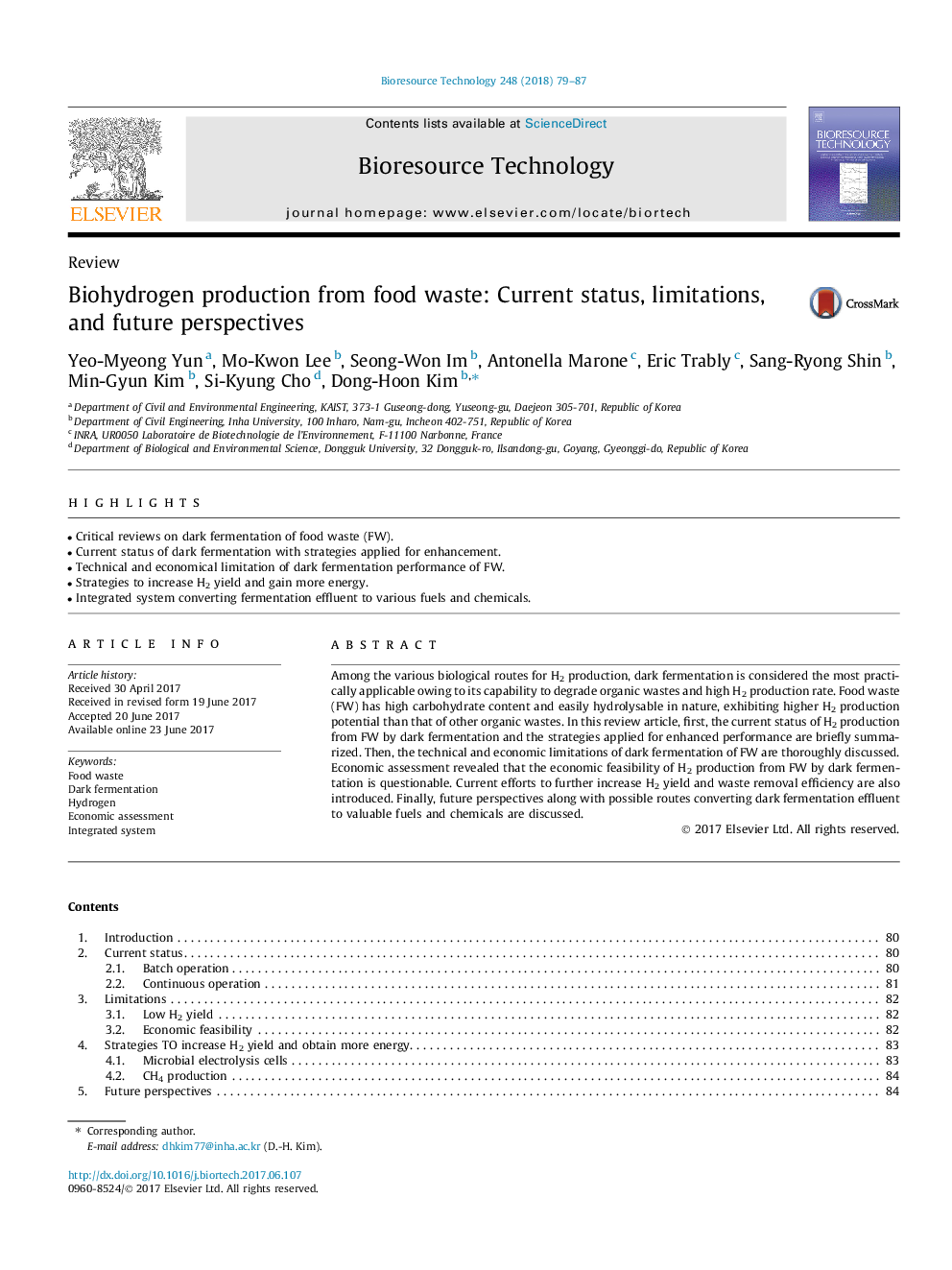| Article ID | Journal | Published Year | Pages | File Type |
|---|---|---|---|---|
| 7069111 | Bioresource Technology | 2018 | 9 Pages |
Abstract
Among the various biological routes for H2 production, dark fermentation is considered the most practically applicable owing to its capability to degrade organic wastes and high H2 production rate. Food waste (FW) has high carbohydrate content and easily hydrolysable in nature, exhibiting higher H2 production potential than that of other organic wastes. In this review article, first, the current status of H2 production from FW by dark fermentation and the strategies applied for enhanced performance are briefly summarized. Then, the technical and economic limitations of dark fermentation of FW are thoroughly discussed. Economic assessment revealed that the economic feasibility of H2 production from FW by dark fermentation is questionable. Current efforts to further increase H2 yield and waste removal efficiency are also introduced. Finally, future perspectives along with possible routes converting dark fermentation effluent to valuable fuels and chemicals are discussed.
Related Topics
Physical Sciences and Engineering
Chemical Engineering
Process Chemistry and Technology
Authors
Yeo-Myeong Yun, Mo-Kwon Lee, Seong-Won Im, Antonella Marone, Eric Trably, Sang-Ryong Shin, Min-Gyun Kim, Si-Kyung Cho, Dong-Hoon Kim,
